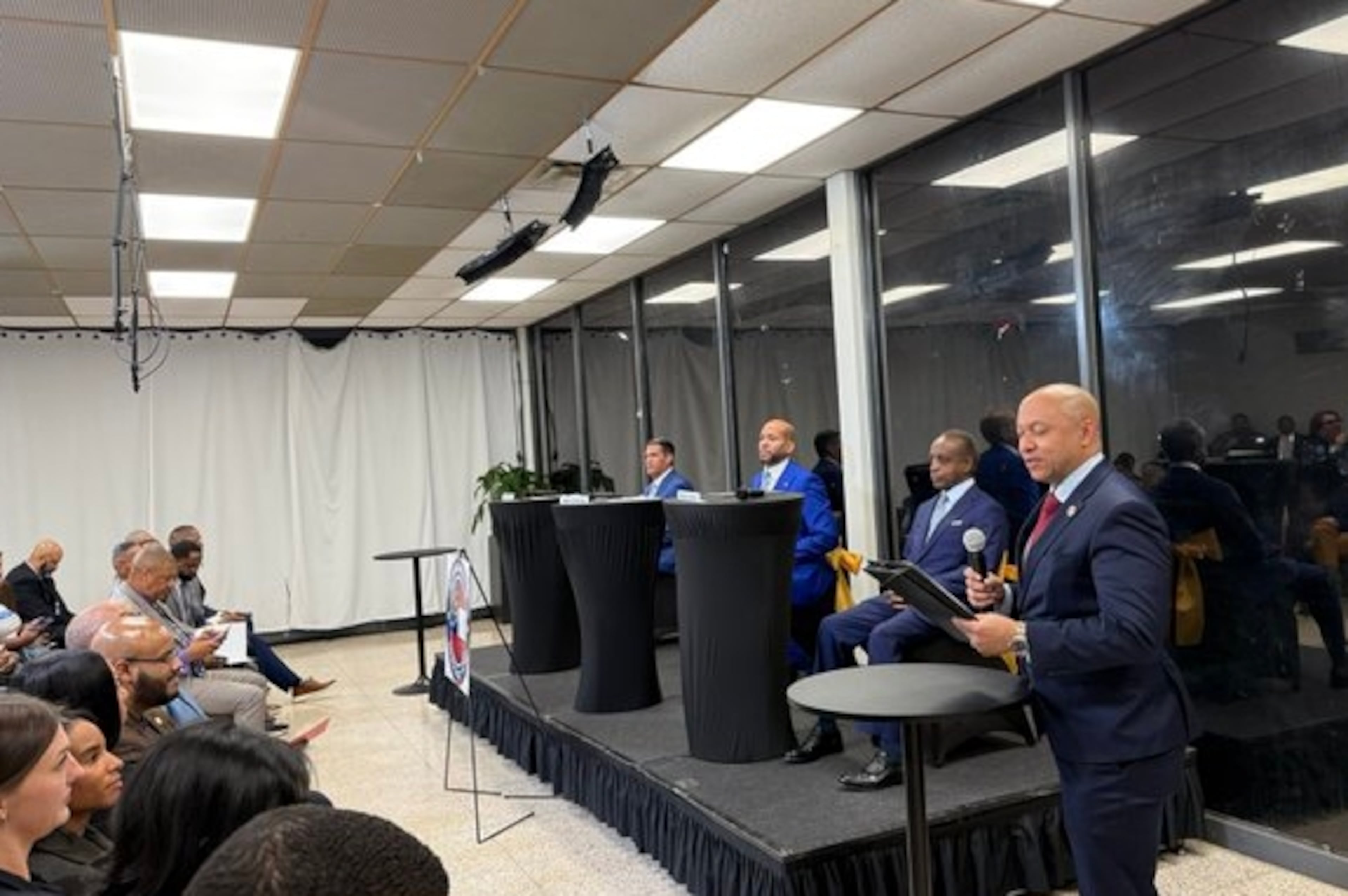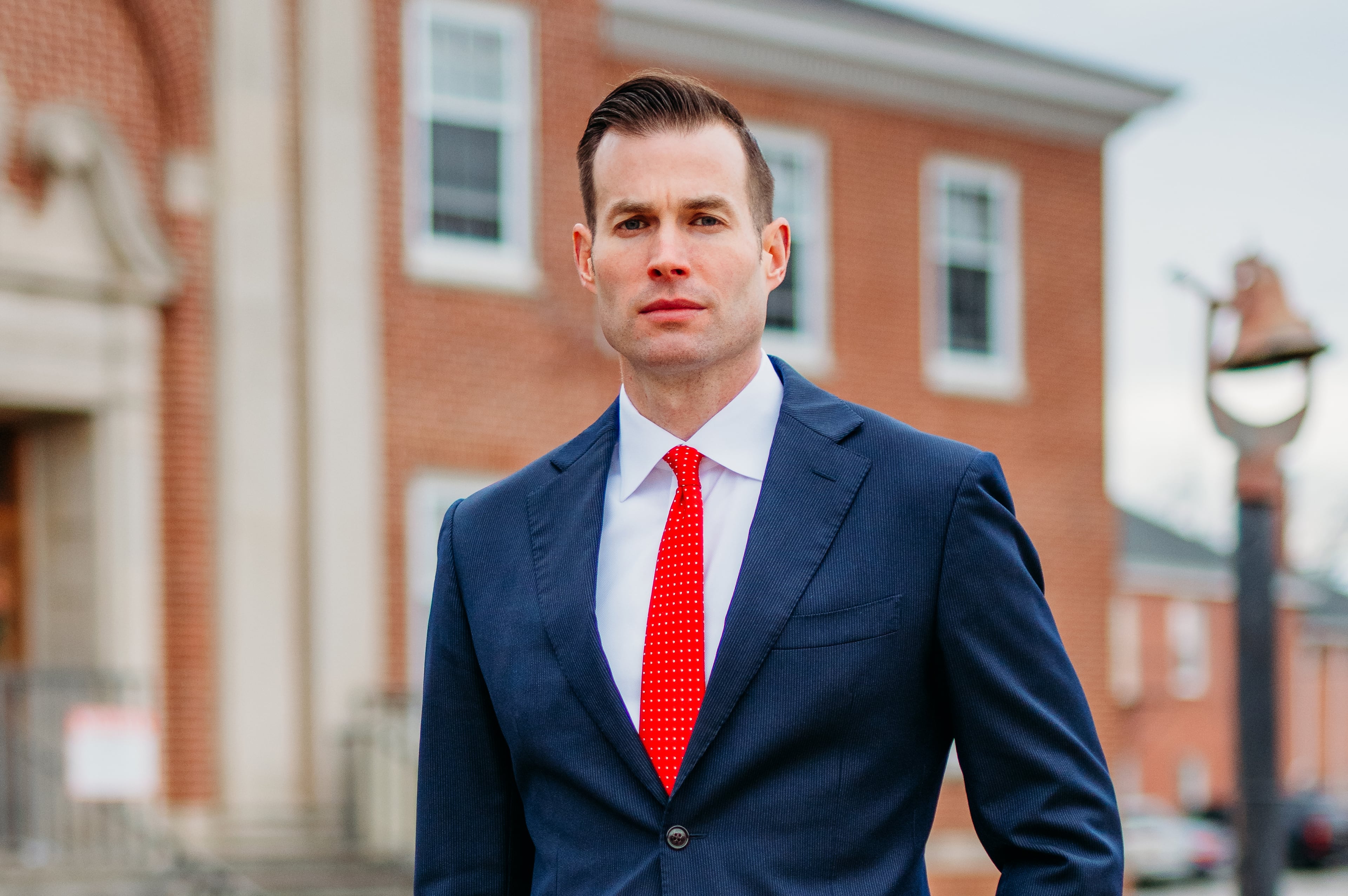OPINION: Raphael Warnock’s year of victories, defeats and Senate prayers

It’s been exactly one year since the Rev. Raphael Warnock became “U.S. Sen. Raphael Warnock,” sworn-in on the floor of the ornate Senate chamber using the Bible he’d received from his congregation at Ebenezer Baptist Church.
Since then Warnock has had highs, lows, and moments of dissonance, looking for ways to work with political adversaries one moment, even as they block his priorities the next.
No moment illustrates the push and pull of Warnock’s job, or of American politics in this fraught moment, than the minutes after GOP senators blocked Democrats’ voting rights legislation Wednesday night, which Warnock had championed since he arrived in Washington.
“Somebody asked me to pray last night as we were leaving the chamber, someone who had voted the wrong way,” Warnock said. “I assured him that I will indeed pray for him.” He added with a laugh, “Until he gets it right.”
Warnock didn’t say who he prayed with or even volunteer that anecdote until I asked about it. I’d heard from several people in Washington that his role as pastor at Ebenezer and senator from Georgia had made him a unique figure in the upper chamber.
Senators and staffers, no matter their political persuasion, reach out to him to pray with them, and he is happy to oblige.
But no amount of prayer has changed the political dynamics in Washington, which have been particularly toxic in Warnock’s first year.
Just hours after he won election as Georgia’s first Black senator on Jan. 5, pro-Trump rioters ransacked the Capitol.
Two weeks later, Joe Biden was sworn in as president and the Senate flipped from Republican to Democratic control when Warnock and U.S. Sen. Jon Ossoff were sworn in, too.
In an interview Thursday, Warnock said Georgia’s role handing the Senate to Democrats and the legislation they’d advanced since then were what made him most proud since the election.
That includes Biden’s $1.9 trillion American Rescue Plan, which Congress passed in March of last year. The package included billions of dollars of direct aid to individuals, free COVID vaccines deployed across the country, retrofitting schools for in-person learning, aid to farmers and small businesses, and a massive, temporary child tax credit.
Although a Republican Senate would likely have approved another COVID aid package, too, only Warnock and Ossoff’s votes made a bill of that size possible for Biden.
“I’m proud of the ways in which the people of Georgia stood up and made the difference for the whole country,” Warnock said.
As a part of his job, Warnock was also appointed to the Senate’s Agriculture, Banking and Commerce committees and pushed bills to directly help Black farmers, send money and missions to Georgia military installations, and spend more than $1 trillion to build roads, bridges, and other new infrastructure projects around the country.
But Warnock’s wins have been joined by defeats, too. The aid to Black farmers he sponsored in the Senate has been stalled by court challenges. Medicaid expansion for Georgia that he campaigned for remains blocked in the state Capitol. And the Democrats’ retooled voting rights bill, which Warnock has pushed since his first Senate speech, suffered a high-profile loss on Wednesday night.
GOP U.S. Sen. Tim Scott, South Carolina’s first Black senator, said Democrats’ accusations of voter suppression against his party’s leaders are hyperbolic at best.
But Warnock rejected that thinking and said he’s just begun his fight for voting rights legislation.
“Last night was a setback, there’s no doubt about that,” he said. “But Dr. King used to say that the arc of the moral universe is long, but it bends toward justice. So we will continue to fight until we win.”
Among the Democrat’s more pleasant surprises since he got to Washington have been the Republicans he’s partnered with , including U.S. Ted Cruz whom he worked with on a bill to greenlight a highway from Texas to Augusta.
“On the day we passed that bill, I heard myself say words that were strange even to my ear: ‘I want to associate myself with the words of Ted Cruz,” he said.
I asked him if it’s hard to think about working with Republicans again after they rejected the voting rights bill he’s made his highest priority. He said no.
“I’m used to preaching every Sunday and wondering if anybody’s listening, but I keep preaching,” he said. “And I’m going to keep preaching the gospel of democracy because I believe in it.”
Warnock is up for reelection in less than a year. He’ll face one of four Republicans, including Herschel Walker, who have gotten into the GOP primary to challenge him.
It’s not clear how Biden’s currently sinking poll numbers will affect the senator’s fate. Or how voters will judge him in these polarized times. Or even which voters will turn out the midterm election, when Stacey Abrams will be on the ballot, but Donald Trump will not.
Along with campaigning, and doing all the things politicians need to do to keep their jobs, Warnock said he sees his primary obligation over the next year, as Georgia’s Black senator at this extraordinary time in history, as pushing his colleagues to see issues through the lens of the next generation, not the next election.
“I want to help us to see every issue through a moral and ethical lens. I want us to look deeply inside and ask ourselves, what’s the right thing to do?”
He wants that test to apply to Medicaid expansion and veterans benefits and the cost of college for students and their soon-to-be debt-strapped families. Most especially, he said it should apply to voting rights.
“I won’t I won’t accept defeat. I still believe in us and I will fight for us.”



